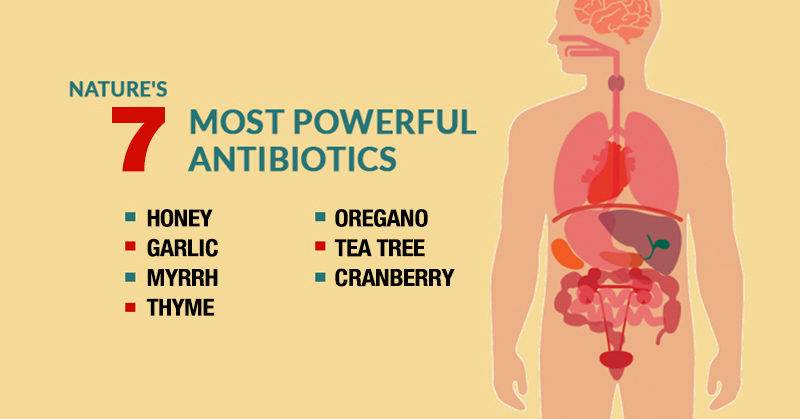An Introduction to Antibiotics
An antibiotic is any substance that inhibits the growth and replication of a bacterium or kills it outright. The introduction of antibiotics into medicine revolutionized the treatment of infectious diseases, allowing doctors to tackle infections that were once fatal. Antibiotics are now a common class of drugs that have made complex surgeries possible worldwide.
Although we often think of antibiotics as man-made drugs, many antibiotics actually exist in nature. Most of the antibiotics used today are based on compounds found in nature. Nature continues to provide some of the most powerful antibiotics that can be used as home remedies for bacterial infections.
Nature’s Most Powerful Antibiotics
There are certain plant extracts, essential oils, and foods that have strong antibacterial properties to prevent bacterial growth. Some of these natural antibiotics can be consumed or used topically by humans. Let’s explore some of the powerful naturally occurring antibiotics:
-
Honey
Honey has been used as an antibiotic since ancient times. Its antibacterial properties are attributed to its hydrogen peroxide content and ability to create moist wound conditions. Honey can also prevent bacterial growth due to its high sugar content and low pH level. Some types of honey, such as Manuka and Tualang honey, have shown significant antibacterial effects against pathogens like E. coli and Salmonella.
-
Garlic
Garlic extract has been found to be effective against common bacteria like C. jejuni. The organosulfur compounds in garlic contribute to its antibacterial properties. Garlic can be consumed or applied topically, but large doses may cause internal bleeding.
-
Myrrh
Myrrh extract has been shown to kill common pathogens like E. coli and Candida albicans. Burning myrrh incense can purify the air and reduce airborne bacteria, helping to prevent the spread of diseases. Myrrh essential oil can be used topically but should be diluted with carrier oil.
-
Thyme
Thyme essential oil is effective against antibiotic-resistant bacteria. It can be used in mouthwashes and liniments to kill germs. Thyme oil should be used topically and diluted with a carrier oil to avoid skin irritation.
-
Oregano
Oregano essential oil contains carvacrol, which can stop the growth of various bacteria. Research has shown promising results in treating bacterial infections with oregano oil extract.
-
Tea Tree Oil
Tea tree oil has antibacterial properties that can damage bacterial cell walls. Research suggests that tea tree oil can prevent biofilm formation on medical devices, potentially preventing infections.
-
Cranberry
Cranberry capsules have been effective in preventing and treating urinary tract infections (UTIs). Cranberry juice has also shown to inhibit the growth of S. aureus bacteria more effectively than other berries.
While natural antibiotics have their benefits, prescription antibiotics are still essential for serious infections. Due to the rise in drug-resistant bacteria, doctors prescribe antibiotics only when necessary. It is important to consult a doctor for proper treatment if an infection persists.






